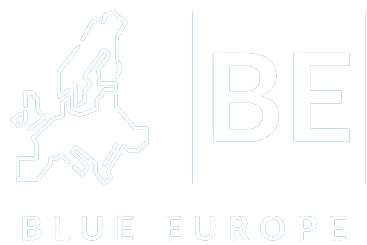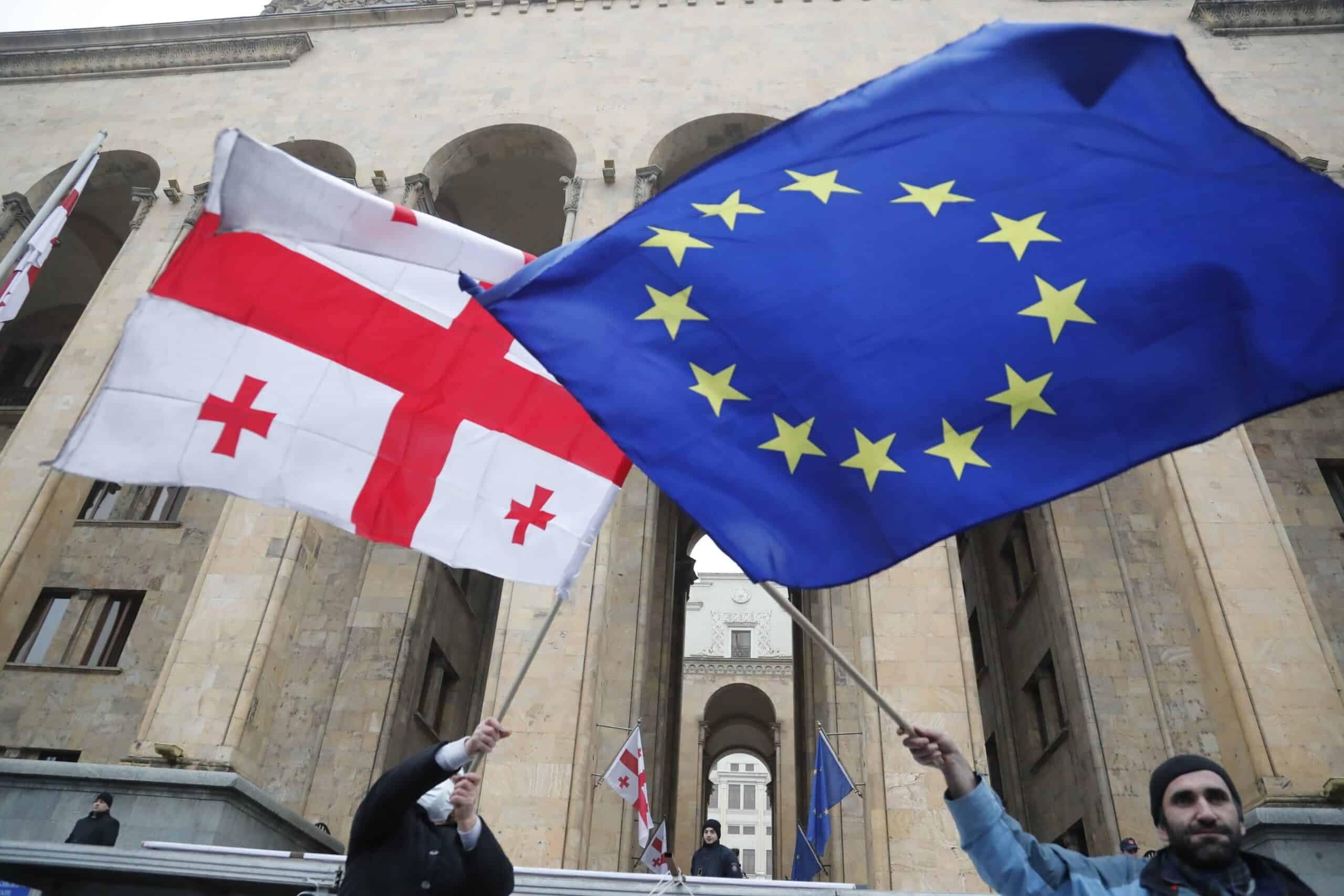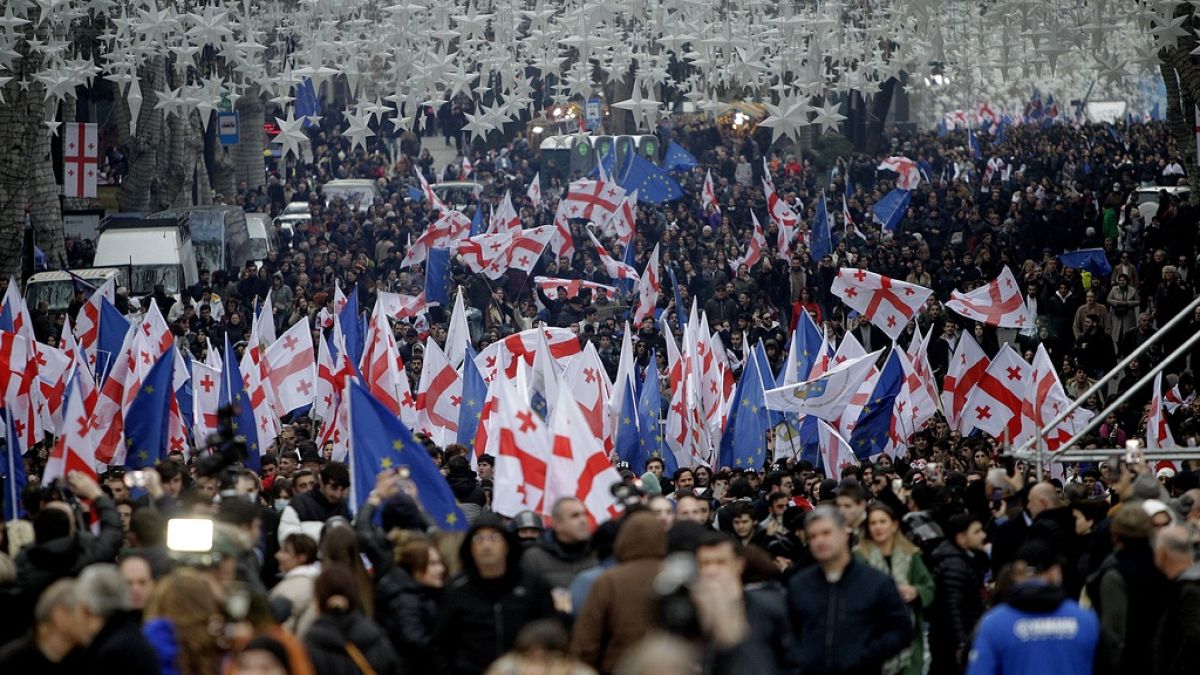Georgia’s foreign policy and national identity have been significantly influenced by its European orientation, a strategic stance that has shaped its diplomatic, economic, and security decisions. As Georgia continues its path towards EU accession, the interplay between historical legacy, societal consensus, and ongoing political efforts will remain pivotal in defining its trajectory.
The historical path towards the West
Since gaining independence, Georgia’s foreign policy has been primarily shaped by the dual objectives of counteracting Russian influence and integrating into Western institutions. The nation’s quest for Western integration has been driven by a desire to align with Europe’s cultural and political landscape, thereby bolstering national security through the adoption of human rights norms, democratic governance, and a system of checks and balances. Despite limitations, this approach has fostered a societal consensus on the indispensability of Western governance models and institutional integration.[1]
EU-Georgia relations have evolved through four distinct phases, from initial post-Soviet recognition and humanitarian aid to the current pre-accession stage. The early period of limited humanitarian and technical engagement by the EU transitioned into a more robust phase with the signing of the Partnership and Cooperation Agreement (PCA) in 1999. This agreement, coupled with Georgia’s accession to the Council of Europe, signified Georgia’s formal pivot towards European integration, focusing on market-based economic development, democracy promotion, and political dialogue.
Georgia’s journey towards EU integration is not just a post-Soviet phenomenon. Historical narratives from 1918 to 1921, during the Democratic Republic of Georgia, highlight the nation’s early efforts to position itself as a European and Christian state, seeking recognition based on its cultural ties to Europe. This enduring perception of Europeanness has been central to Georgia’s national identity and has served as a strategic narrative for policymakers, particularly during the restoration of independence.
The association phase marked a deeper commitment, culminating in the full application of the EU-Georgia Association Agreement (AA) in 2016, aiming to align Georgian legislation with the EU acquis. In 2022, Georgia further solidified its European aspirations by applying for EU membership, following Ukraine’s lead.
The current ruling party, Georgian Dream (GD), has continued this Europeanizing trajectory since its inception in 2012. Recent foreign policy frameworks reiterate Georgia’s European identity and prioritize EU and NATO membership.[2] Under GD’s governance, significant milestones such as the signing of the AA, visa liberalization with the EU, and constitutional amendments have reinforced Georgia’s commitment to full integration into European structures.
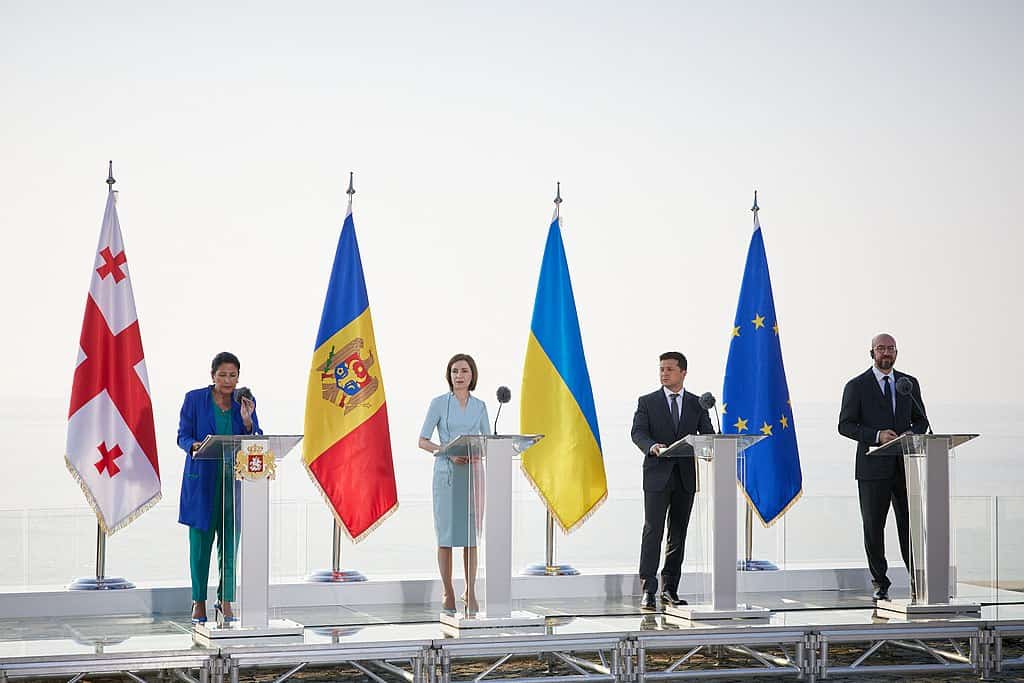
Developments after the breakout of the war in Ukraine
Following the escalation of the conflict in Ukraine, Tbilisi, alongside Ukraine and Moldova, submitted an application for EU membership. In 2022, while the EU conferred candidate status upon Kyiv and Chisinau, it stipulated that Tbilisi needed to first address specific reforms in its judiciary and electoral systems, enhance press freedom, and diminish the influence of oligarchs.
As a matter of fact, in June 2022, Georgia’s bid for candidate status was deferred by the EU, which instead presented the country with a set of 12 conditions that needed to be addressed before reconsidering its application. This decision underscored the EU’s expectations for comprehensive reforms and substantive progress in governance and societal values as prerequisites for closer integration. The stipulated conditions reflect the EU’s commitment to ensuring that candidate countries align with its standards and principles, signifying the ongoing challenges and expectations Georgia faces on its path to EU membership.
For instance, the fifth recommendation reads:[3]
“Implement the commitment to “de-oligarchisation” by eliminating the excessive influence of vested interests in economic, political, and public life.”
In a subsequent development, on 7 November 2023 the European Commission proposed that EU leaders accord Georgia official candidate status contingent on the implementation of the recommended reforms by the Tbilisi administration.[4] “The Commission recommends that the (European) Council grants Georgia the status of a candidate country on the understanding that certain reforms that steps are taken,” said EU Commission President von der Leyen.[5]
However, apprehensions arose in Tbilisi regarding potential impediments to obtaining this status due to Hungarian Prime Minister Viktor Orban’s indication of obstructing critical decisions about Ukraine at the EU summit, which might have also adversely impacted Georgia.
Despite these concerns, an arrangement had been made for Orban to abstain from the room, enabling the other 26 EU leaders to reach a consensus decision in favour of advancing Georgia’s candidacy.[6] This manoeuvre reflects the intricate dynamics and negotiations characterizing the EU’s enlargement process and the specific geopolitical considerations impacting candidate countries in the turbulent global scenario.
The road ahead
The Georgian Dream Party’s decision to apply for EU membership ahead of its planned 2024 timeline marked a significant acceleration in its Europeanization strategy, prompted by mounting pressure from domestic opposition and widespread public demonstrations. The “March for Europe,” orchestrated by Georgia’s liberal activists’ group, the Shame movement, and other pro-democracy entities, aimed to visibly affirm the Georgian populace’s dedication to European integration and Western values. This shift in public sentiment and political activism played a pivotal role in altering the party’s approach towards EU accession.
The European Union is confronted with a challenging decision regarding Georgia’s candidacy. On one hand, granting candidate status to Georgia could have inadvertently embolden the Georgian Dream Party in its current trajectory, which has been criticized for anti-democratic tendencies.[7] Such a move might compromise the EU’s credibility and its stance on promoting democratic values and human rights.
On the other hand, failing to advance with Georgia’s candidacy could lead to widespread disillusionment among the Georgian populace, who have demonstrated a robust desire for European integration and alignment with Western values.[8] Additionally, it may inadvertently drive the Georgian government to seek closer ties with regional rivals, potentially altering the geopolitical balance in the region.
This dilemma highlights the delicate balance the EU must maintain between encouraging democratic reforms and recognizing the strategic importance of expanding its influence and stability in neighbouring regions. The negotiations will require careful consideration of both the immediate and long-term implications for Georgia, the region, and the EU’s broader foreign policy objectives especially considering the broader international scenario of approaching elections.
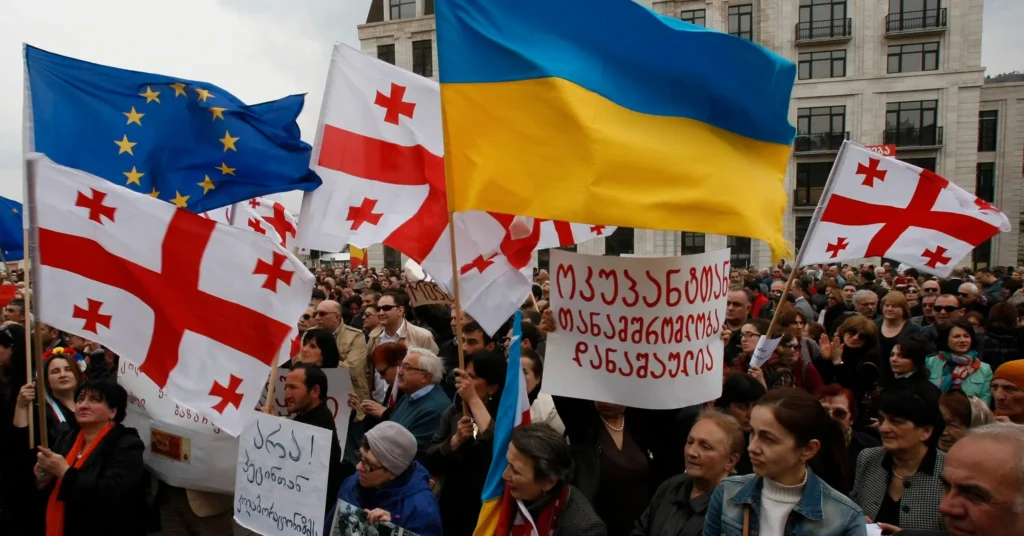
Sources
-
https://carnegieeurope.eu/2023/11/16/eu-georgia-relations-local-show-of-global-theater-pub-90995 ↑
-
https://www.reuters.com/world/europe/georgia-says-joining-nato-only-way-preserve-countrys-integrity-report-2022-02-17/ ↑
-
https://www.eeas.europa.eu/sites/default/files/documents/12%20Priorities.pdf ↑
-
https://commission.europa.eu/news/enlargement-commission-recommends-starting-accession-negotiations-ukraine-moldova-bosnia-and-2023-11-08_en ↑
-
https://www.reuters.com/world/europe/eu-executive-proposes-grant-georgia-eu-candidate-status-2023-11-08/ ↑
-
https://www.politico.eu/newsletter/brussels-playbook/viktor-orban-leaves-room-so-ukraine-can-come-in/ ↑
-
https://carnegieeurope.eu/strategiceurope/89260 ↑
-
https://www.euronews.com/2023/12/11/georgians-rally-for-eu-candidacy-amidst-political-tensions ↑

